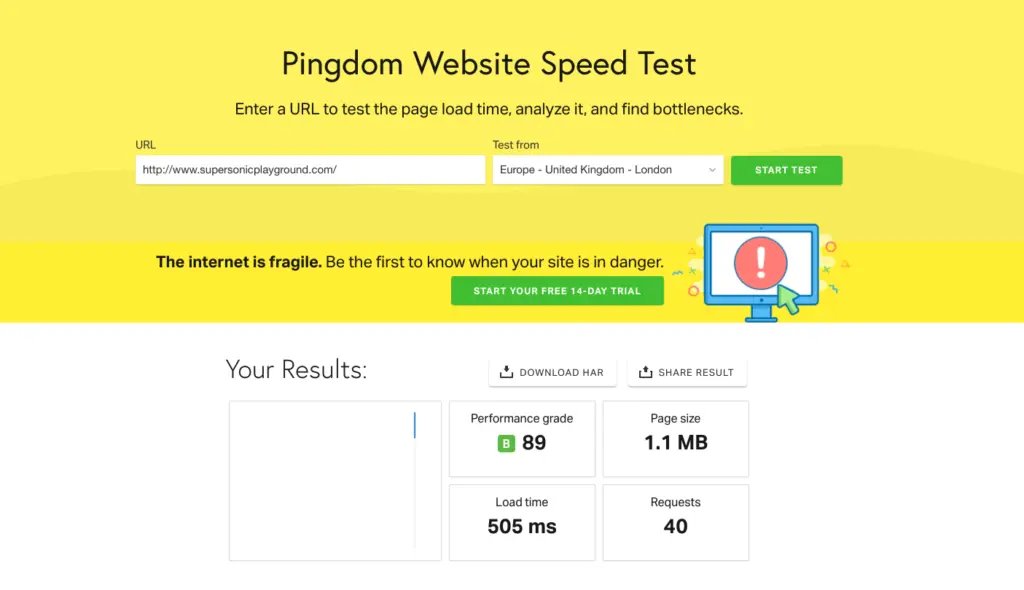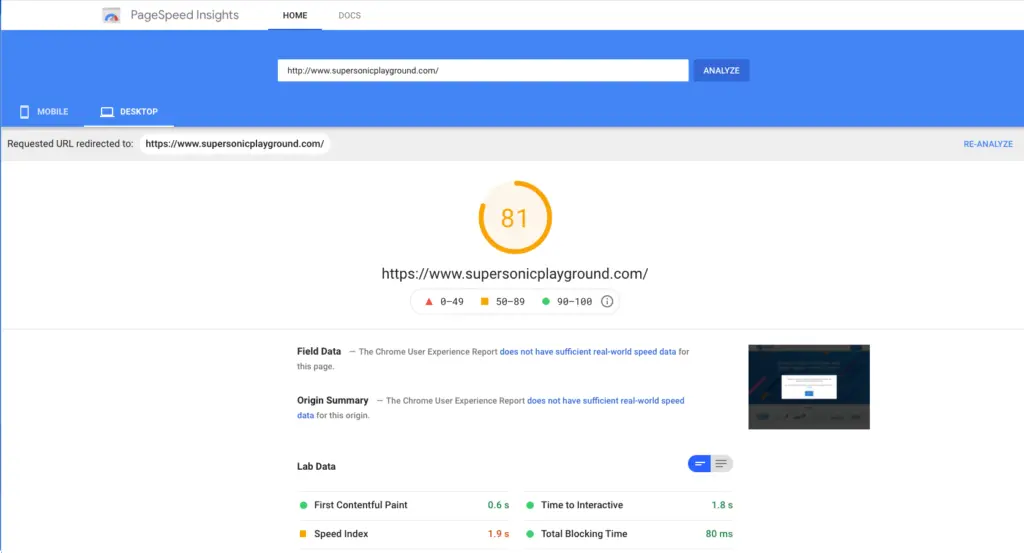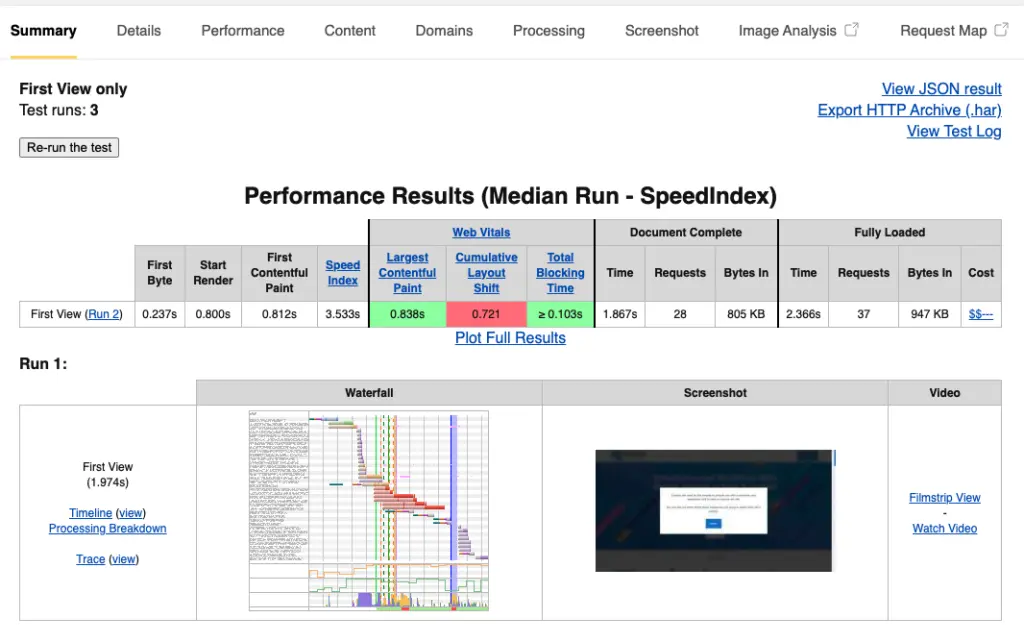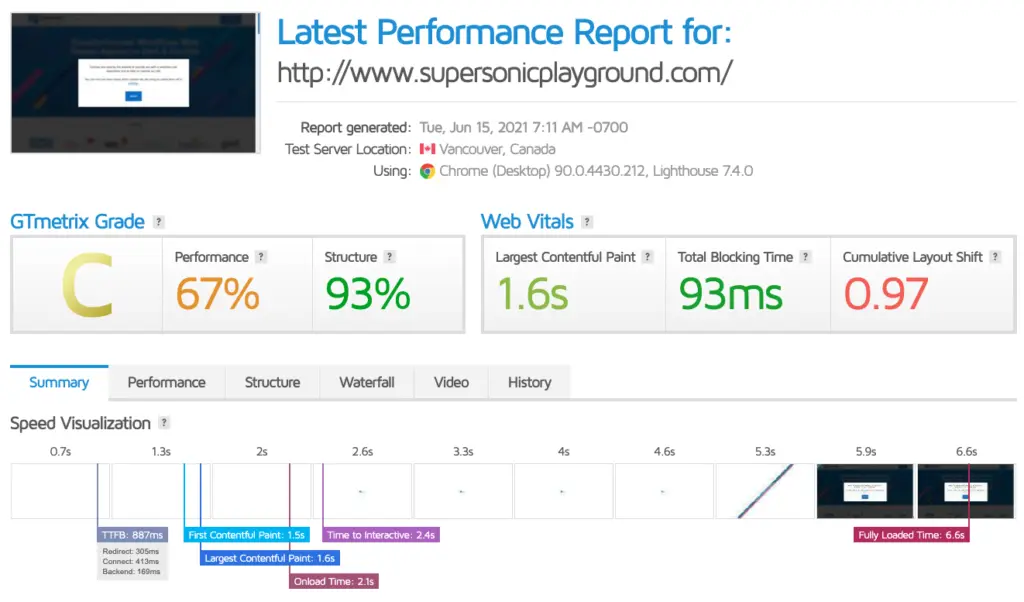Before we outline our top website speed tools, it’s worth noting that each has its own metrics and ranking factors which means that you can’t compare the results from one with another. Instead, we recommend choosing just one which you can then use to benchmark and improve your site’s performance.
Pingdom is a very good website speed tool that is easy to use. When you land on the page, it asks for your website’s URL and then delivers a report grading your site based on its perceived performance. You’ll also see a breakdown of metrics scored out of 100, along with suggestions for improvement.

Website speed is an important ranking factor for Google, so it makes sense that they have their own free tool to measure performance. Like Pingdom, the tool is easy to use and provides you with a score out of 100 based on your website’s overall speed. In addition, they use a handy traffic light system, and the report splits your site’s performance by device, providing a breakdown of the steps you can take to improve your score.

WebPageTest provides detailed speed reports in various formats for more advanced needs, including waterfall, screen capture, and video. Like our other recommended tools, WebPageTest is free and makes suggestions for areas of improvement. The tool also allows you to select location and browser settings for more sophisticated testing.

GTmetrix is one of our favourite and most popular speed testing tools. It’s free, easy to use and provides an advanced analysis of your site’s performance and recommendations. The report is easy to digest and details a percentage overview of key areas, including performance and structure. It also highlights the most important areas to focus on (those that will have the most impact) and how to improve them.

We hope you found this content useful. For more of our latest insights, check out our blog or register for our weekly newsletter.
Tell us about your project concept and we will get back to you within 1 business day.
